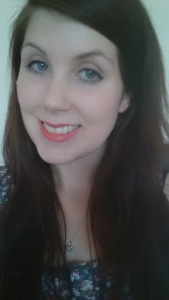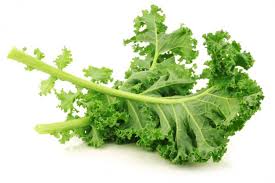“Don’t go on the Internet”.
These are the words of many doctors and nurses that many of us hear when we’re first diagnosed. The Internet, of course, contains lots of useful information but sifting through everything that’s out there to get to the good stuff isn’t easy. In our latest blog, Sarah writes about the pluses and minuses of being a cancer patient in the Internet age – and explains why she won’t be overdosing on kale anytime soon.
When Tim Berners-Lee invented the Internet back in 1989, he didn’t know that he was creating what would turn out to be an instrument of torture to many people diagnosed with cancer.
One of the few edicts given to me by my consultant was “stay off Google”. I managed it for about a day. And once I’d typed the words ‘small bowel adenocarcinoma’ into that search engine I immediately realised why it was such a bad idea.
Since then, many a sleepless night has been spent lit up by the blue light of a computer screen, heart pounding. Survival statistics – or what in my case would be better described as non-survival statistics – are accessible within seconds, hammering home that living through this is pretty much as improbable as me getting the disease in the first place. I search desperately for survivor stories, proof that people can and do live long after this diagnosis, and find nothing – apart from one old lady in Japan who appears to have had all the luck.
One of the most frightening things I’ve ever seen – on the Internet or elsewhere – was a forum conversation between people with my cancer (a rarity, given how uncommon it is). In 2009 the patients posting were gung ho about their chances for survival. A few years later, when someone newly diagnosed joined the chat to ask them how they were doing, they were met with a resounding, terrifying, silence. Missing, presumed dead.
Almost as bad is the impact that the Internet has on other people; it’s an echo chamber of misinformation when it comes to cancer, and what you can do to cure yourself. There aren’t many patients who haven’t been confronted with a well-meaning friend telling them that the doctors spending huge amounts of NHS money on removing big parts of your body, or infusing your bloodstream with poison, or exposing you to huge doses of radiation in an attempt to purge you of the disease are just being silly. All you need to do to cure your cancer is eat loads and loads of lovely KALE. Or alkalize your body. Or, if you’re really up for compounding your misery AND convincing your family that a cancer diagnosis has brought out a peculiar brand of caffeinated perversion, explore the joys of coffee enemas.
The mind boggles and yet, clearly not enough minds are boggling when it comes to stories like this. Self-styled ‘wellness bloggers’ abound. People who, despite having curative surgery or chemotherapy, attribute their cancer-free status to the fact that they ‘healed themselves naturally’ with whatever scientific improbability they’re peddling.
These people seemingly don’t understand that adjuvant chemotherapy is designed to defend against a possibility, not an inevitability. Or that just because they eschewed tried and tested cytotoxins in favour of “de-toxing”, and made it out the other side, it doesn’t mean that another person in their position should do the same. However benign the intentions of these people, in an ideal world, they’d be forced to revisit the science curriculum, in particular the part that covers the fact that correlation does not imply causation. But as anyone can sign up for a WordPress account, vulnerable people can easily stumble across these sites and receive some very bad advice indeed.
Notable in this particular internet oeuvre, is Australian blogger Belle Gibson, who garnered a huge Instagram following with her tales of curing incurable brain cancer through diet alone – a story consumed uncritically by her followers and media outlets that really ought to have known better. Her popularity led to a book deal with Penguin and a place in the Apple Watch app store until, inevitably, it was revealed that the whole thing was fabricated. She never had cancer in the first place.
The Internet’s not all bad though. Without it, I would never have stumbled across Shine. Having cancer as a younger person can be extremely lonely but Shine, amongst many other things, enables those living with cancer in their 20s, 30s and 40s a chance to chat via a closed Facebook group – much needed when you’re three decades younger than everyone else in the waiting room. Without Shine, I would have panicked when I received news that I’d had a dodgy smear (apparently this is common post-chemo) and never have found people who truly understand the mental torture of ‘scanxiety’. Perhaps most important of all though, at a time when all your other peers are having fun, having babies and living in a carefree way that seems a distant memory, it’s comforting – selfishly – to know that you’re not the only one facing losing your life when it was only just getting started.
So, I’m a daily visitor to Shine’s Facebook group. And now, thanks to the acuity of targeted advertising, stoma care products are now breezily showcased down the sidebar. Thanks Internet.
Sarah Carlin is 31 and works as freelance in PR and as a copywriter.


